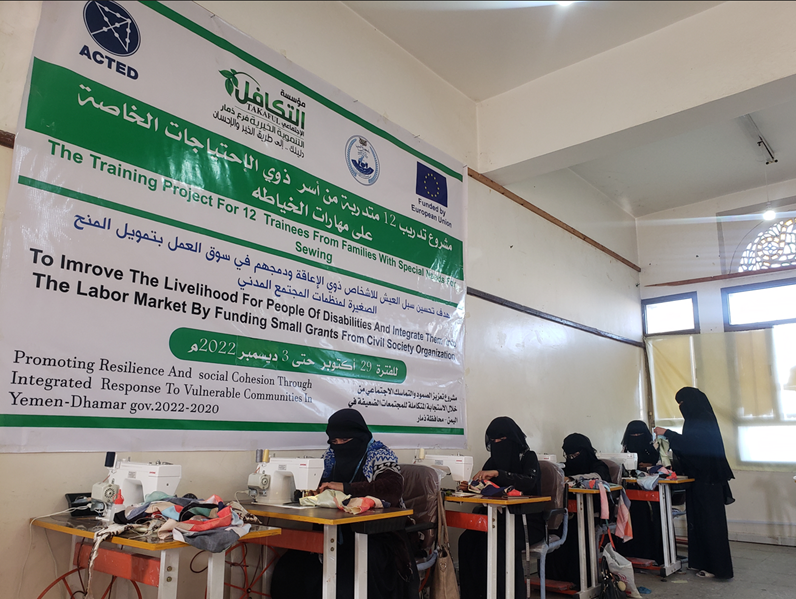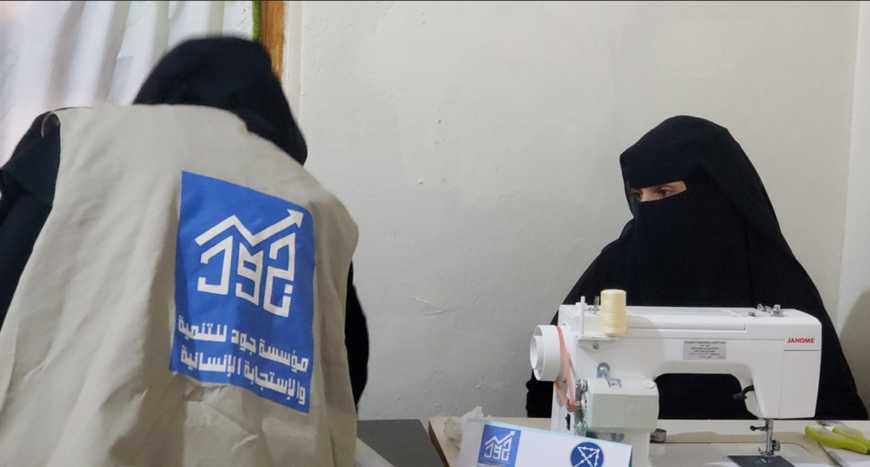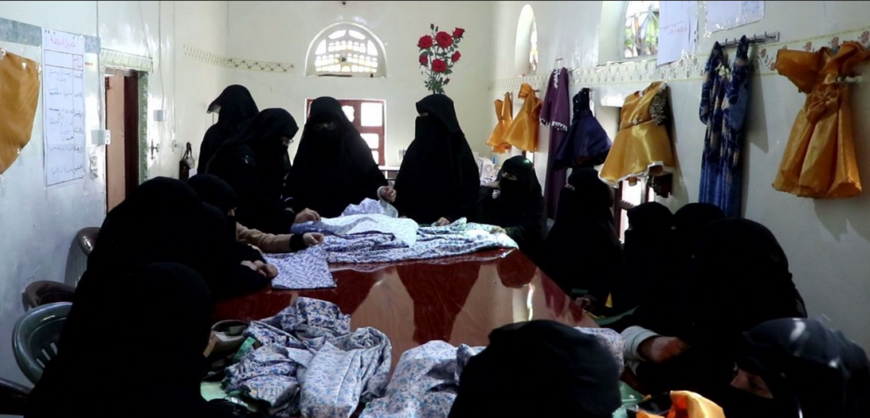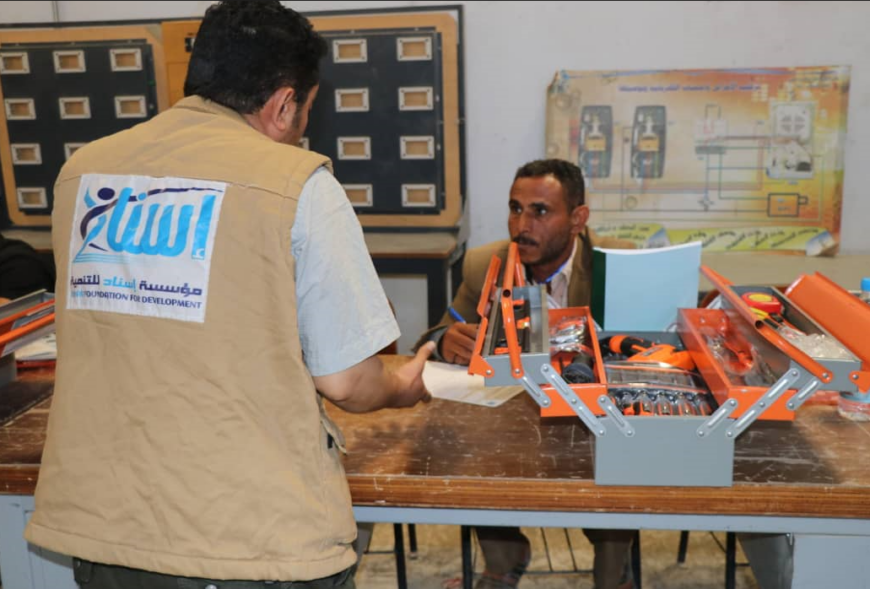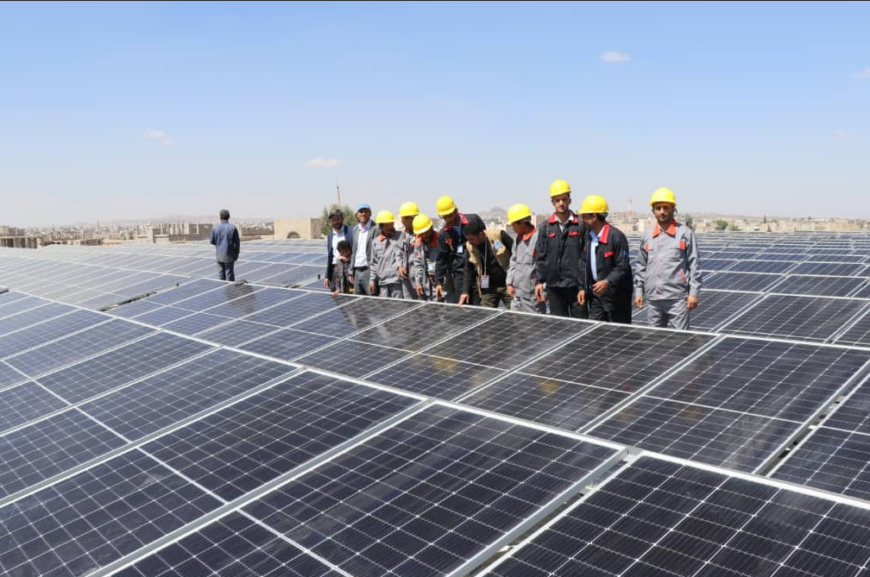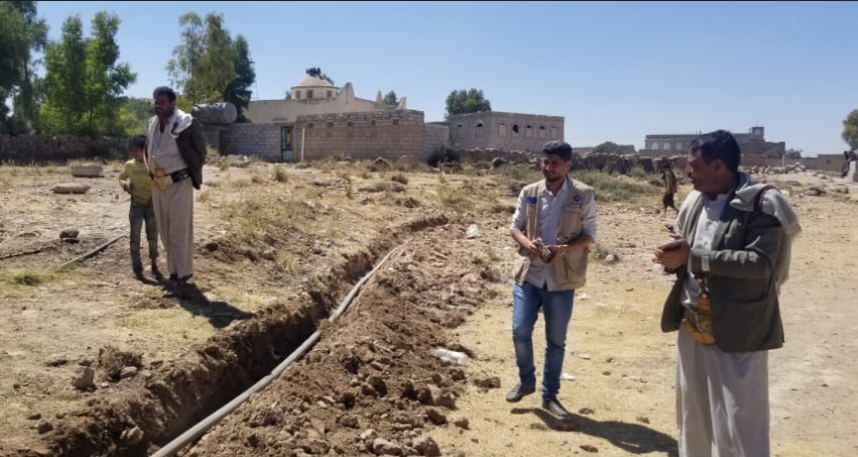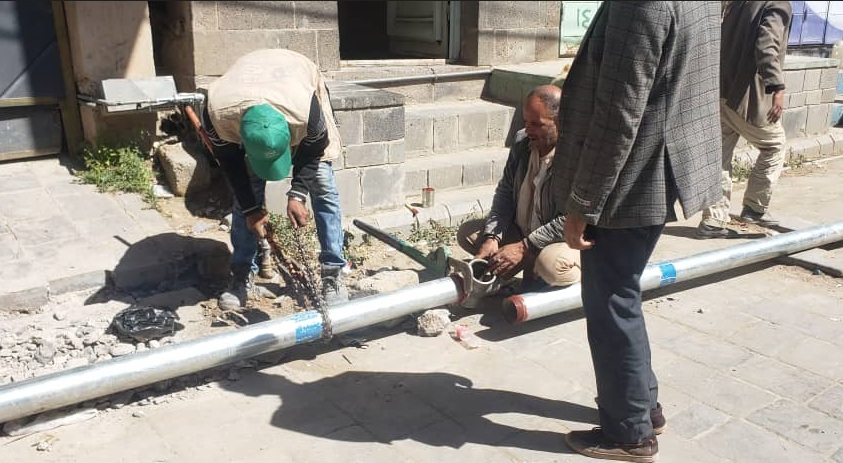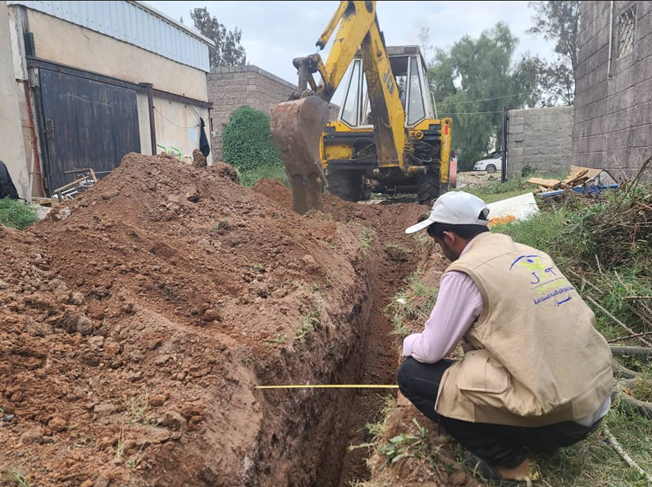As the leading agency of the first European Union-funded Durable Solutions project in Yemen, ACTED and its humanitarian partners Danish Refugee Council (DRC), Norwegian Refugee Council (NRC), CARE, International Rescue Committee (IRC), and Search for Common Ground are implementing a wide variety of interventions aimed at addressing the suffering caused by displacement.
These interventions, operating in the Dhamar and Lahj governorates of Yemen, are also setting the stage for long-term solutions, for some of the 3.4 million Internally Displaced Persons (IDPs) in Yemen.
By leveraging each partner’s organizational areas of expertise, the consortium is able to meet the most dire immediate needs, while developing sustainable outcomes for both IDPs and host communities. One activity that ACTED is implementing under this project focuses on building the capacities of local Civil Society Organizations.
What is a Durable Solution ?
A durable solution is achieved when IDPs no longer have any specific assistance and protection needs that are linked to their displacement and can enjoy their human rights without discrimination resulting from their displacement.
The Importance of Civil Society in Yemen
When provided with adequate resources, Civil Society Organizations (CSOs) can provide high-quality, sustainable assistance for their communities and begin the long journey towards reconstruction of the country through grassroots movements. This can be achieved in a number of ways, whether by finding innovative methods of poverty alleviation through culturally appropriate solutions, or by implementing public infrastructure works that benefit the entire community. CSOs can create positive social change in ways that major international non-governmental organizations’ s cannot. They can create local dialogues, advocate for the poorest, participate in the empowerment women and marginalized people, promote social and economic inclusion, and lead their communities by example.
Therefore, building the operational capacities of Civil Society Organizations is a key priority for humanitarian actors in Yemen. Through support from the European Union, ACTED was able to build the capacity of 15 CSOs in the Lahj and Dhamar governorates of Yemen.
ACTED’s team has developed a customized training plan for each CSO, based on the individual needs of the CSO. These trainings were provided to five CSOs in Lahj governorate and ten CSOs in Dhamar governorate. The trainings aimed to strengthen key CSO skills in proposal writing, project design, budget management, implementation procedures, and accurate reporting to donors and authorities.
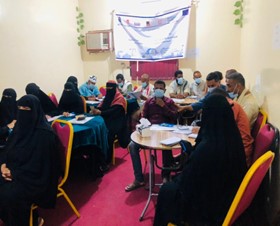
Members of participating CSOs attending capacity-building trainings in Lahj, Yemen.
Once trained, participating CSOs were invited to submit a grant proposal, which allowed them to secure funding for their projects and apply what they had learned in the organizational capacity building phase.
The projects of these CSOs, contributed to improve the access to livelihoods, especially for women, displaced people, people with disabilities and people living in extreme poverty. These projects have also helped rehabilitate existing infrastructure, which is essential to the whole community.
Improving access to livelihoods
The humanitarian crisis has collapsed economic systems and forced millions to move from their homes. The collapse of public services, largescale displacement, and currency fluctuations damaged the jobs market, meaning many vulnerable families in Yemen struggle to provide for their families. Thanks to ACTED’s support, several opportunities to access to livelihoods for vulnerable populations have been implemented by CSOs capacitated and supported by ACTED in Lahj and Dhamar.
In Dhamar, four CSOs have designed and implemented projects to improve the livelihoods and income-generating opportunities of vulnerable women through sewing and textile training as Yemen is known around the world for its vibrant textiles and unique clothing designs. These projects also promote the social inclusion of the most vulnerable women. Those who participated in the trainings received sewing machines and kits, which enabled them to start their own small businesses.
Two CSOs have also implemented technology skills training for vulnerable populations. These skills will enable them to earn income, increase social inclusion, and benefit communities through their services. For example, the Dar Al Salam organization has trained vulnerable men and women with disabilities in cell phone programming and maintenance, while providing them with the tools to launch their new businesses.
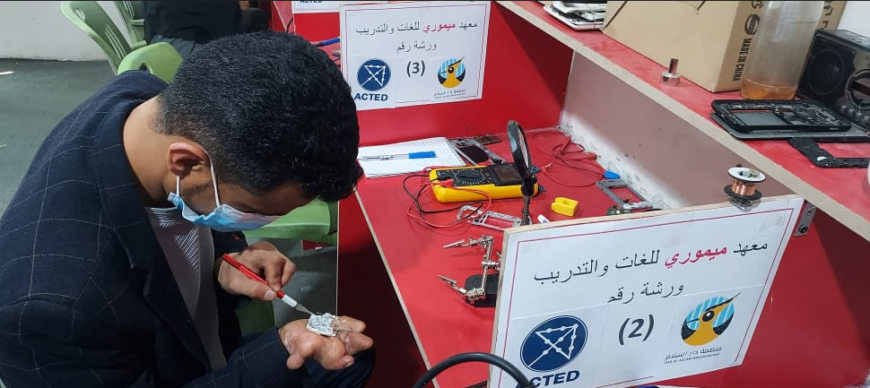
Moreover, the Esand Development Foundation identified the growing importance of sustainable energy, especially in a context like Yemen, which is highly vulnerable to the effects of climate change. The Foundation trained vulnerable families in the installation, maintenance and repair of solar panels. Participants practiced their practical skills in a workshop and in the field and were given the tools to begin generating income for their families.
Rehabilitating existing community assets
With ACTED support, in Dhamar governorate, four of the ten CSOs trained focused on the rehabilitation of key public infrastructure projects. The conflict and collapse of public services allowed many public infrastructure works to fall into disrepair, such as roads, sewage systems, and health facilities. Without these key public infrastructure works, communities will struggle to rebuild their economies and recover from the crisis. The organizational skills acquired by these CSOs allow them to apply for future funding and continue to develop public services in their communities for years to come.
Similary in Lahj governorate, the CSO Takaful Abnaa Al-Makabera rehabilitated Al Maqatirah road, the main road to the district. This reconstruction project benefited more than 10,000 people in the community, but also the surrounding villages.
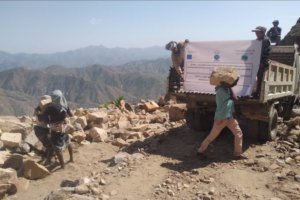
Takaful Abnaa Al-Makabera’s rehabilitation underway on the Al Maqatirah road in Lahj, Yemen.
With the support of the EU and through this Sustainable Solutions project, ACTED was able to support these 15 civil society organizations in Dhamar and Lahj. The skills they have acquired and the projects they have implemented will benefit the most vulnerable communities in Yemen for years to come.

